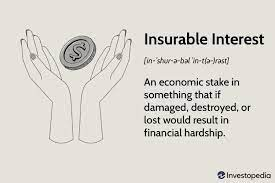
20 Dec When Is A Deed Of Trust Needed?
If you’re purchasing a property with someone else, you will likely want to get a deed of trust outlining share ownership and how the property will be divided when the agreement ends. It protects you and the other parties and reduces the risk of disputes later.
What is a Deed of Trust?
A deed of trust is a legally binding document, drawn up when two or more people are buying a property, outlining how much they put into the property, what percentage of it they own and what happens in various eventualities, for example, when they part ways, sell up, or one buys the other out. The Law Society stresses the importance of getting a deed of trust at the outset to reduce the risk of disputes, protect the financial interests of the parties involved and ensure that they each get what they’re entitled to if the arrangement comes to an end.
When Is It A Good Idea to Get One?
In any situation where two people who are not married purchase a property, a deed of trust is almost always a good idea to at least explore. This applies to not only unmarried couples, but with house prices making buying alone more difficult, friends can put their resources together in order to get on the property ladder. Often different parties contribute different amounts in deposits and defining the value of the shares owned by each party legally at the outset reduces disagreements later on.
Other situations in which a deed of trust should be drawn up include those where someone has a financial interest in the property who is not the registered owner, or one of the owners can’t be included on the deeds or on the mortgage, possibly due to affordability checks.
How Much Does a Deed of Trust Cost and What Is Included?
For obvious reasons, each deed of trust is different, tailored to the individual case and the cost will vary by firm and the complexity of the agreement. Firms such as Sam Conveyancing can offer advice as to what to include and eventualities you perhaps haven’t considered. For the most part, a deed of trust will outline the following, but they can be flexible and additional clauses can be included:

The amount each party has contributed to the deposit – this is the main starting point for a deed of trust and is normally the basis on which the equity is divided.
The amount each party will contribute in mortgage repayments and additional outgoings – this includes maintenance, such as replacing windows or the boiler as well as redecoration. Sometimes the person contributing the lower figure in the deposit share will contribute a higher percentage of the mortgage and maintenance payments, until such date as the amount they’ve put into the property matches the other party’s deposit.
The equity share each party will ultimately own – this will outline the equity share, and if it will change over the period of ownership. It should also specify how much each party will get from the sale of the property in that eventuality.
How the property is to be valued before it is put up for sale – again, this should be outlined at this point so that in the event of a dispute, the agreement is followed.

When undertaking such a major financial commitment, it is wise to both protect your current financial interests and to outline plans of action in advance should disputes occur further down the line. A deed of trust can be tailored for almost any eventuality, streamlining the process and ensuring all parties are treated fairly.


Sorry, the comment form is closed at this time.